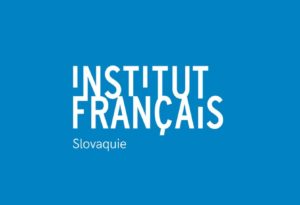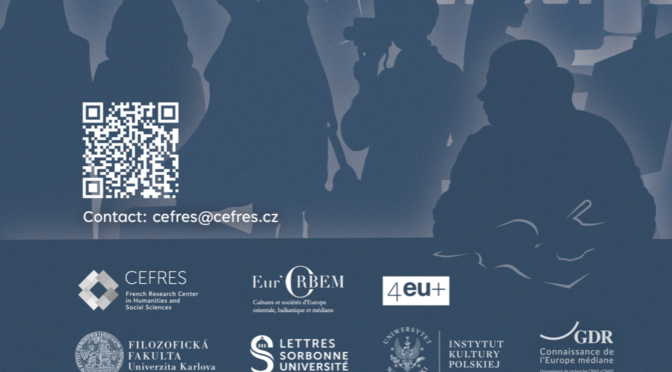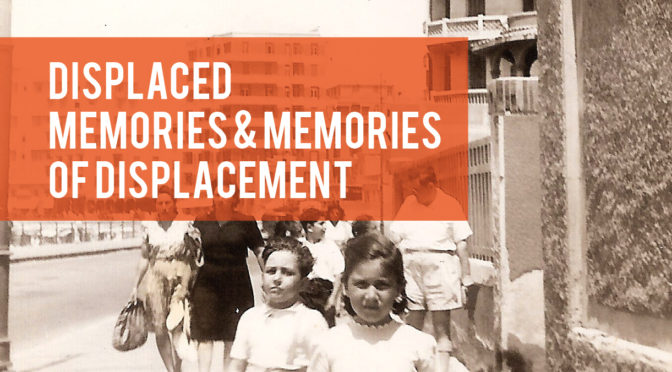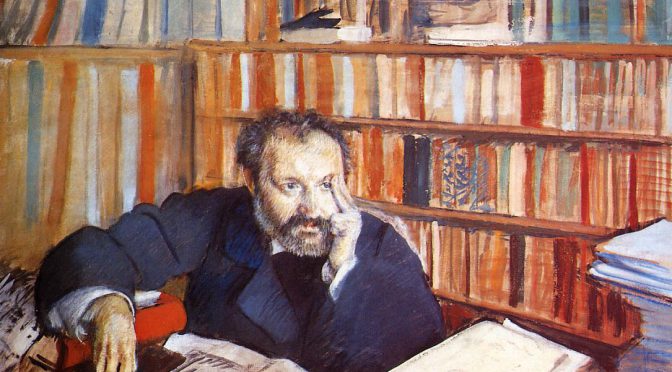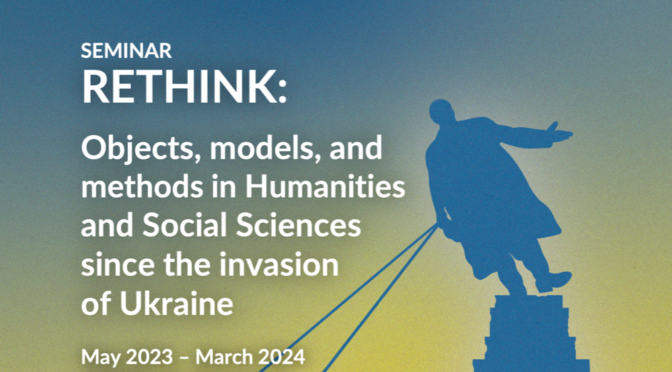Displaced Memories & Memories of Displacement.
Vanquished Others, Silenced Past, and the Burden of Implication in the 21st Century
An International Workshop organized by the Institute of Ethnology, Czech Academy of Sciences, Strategy AV21 and CEFRES
This two-day Workshop seeks to provide a comparative, collaborative, and interdisciplinary platform to discuss many cases of how the silenced heritage of the displaced populations in Europe and beyond is being negotiated in the present day. Breaking away from the traditional nation-centred orientation, we will focus on the memories of displacement, focusing on the people who were forced to abandon their homelands and previous lives and to re-establish their lives and homes elsewhere, as well as on the displaced memories about the violent removal, both symbolic and physical, of the vanquished others from their social spaces.
Organizing committee: Michèle Baussant (CEFRES, CNRS, ICM), Maria Kokkinou (Charles University, CEFRES) and Johana Wyss (Czech Academy of Sciences / CEFRES).
For more information about 2020-2021 Tandem Team’s project, see here.
For more information about the Tandem programme, see here.
Date: 9th – 11th of June 2021
Venue: Villa Lanna, Prague and online, you will find the links below.
Language: English
Please find the full argument of the Conference and the list of the participants here.
Programme
Wednesday 9th of June 2021
Link to join the webinar: https://us02web.zoom.us/j/81357979512
ID: 813 5797 9512
17:00 – 17:20: Welcome remarks by CAS representatives and CEFRES representatives
17:20 – 18:30: Keynote: Legacies of Forced Displacements and the Burden of Implication in the 21st Century by Johana Wyss, CAS / CEFRES
18:30 – 20:00: Evening reception
Thursday 10th of June 2021 – First day of the Workshop
Link to join the webinar: https://us02web.zoom.us/j/86043186862
ID: 860 4318 6862
8:30 – 9:00: Registration
9:00 – 9:10: Welcome by the organizers & housekeeping
9:10 – 9:20: Introduction by Michèle Baussant
9:20 – 10:50: Panel 1, Dissonant Heritages: Victims, Bystanders and Unrecognized Heroes
Talking about Jews in Poland: An interactional, ethnographic perspective, Thomas Van de Putte, University of Trento
Salonica – Thessaloniki: Holocaust survivors & memories of absence, Kateřina Králová, Charles University
Unrecognized Heroes and Conflicting Historical Heritage, Michal Pavlásek, Czech Academy of Sciences
Chair, Evelyne Ribert, IIAC, CNRS, EHESS, ICM fellow
10:50 – 11:20: Break (30 minutes)
11:20 – 12:30: Panel 2, Politics of National Identity and Vivid Memories
Newcomers in Czech Western Silesia 1945-1960: Between “old” and “new” identity, Ondřej Kolář, the Silesian Museum in Opava
Contested heritage of Istria. Between conflict nationalisation processes, identity foundations and bridges, Katja Hrobat Virloget, University of Primorska
Chair, Rose Smith, Charles University
12:30 – 13:40: Lunch Break (70 minutes)
13:40 – 15:10: Panel 3, Unmaking Belonging, Making “Internal Strangers”
Namibian Czechs – their identity and search for home, Kateřina Mildnerová, Palacký University Olomouc
Memories and relationship to otherness in contemporary Portuguese society: The case of displaced populations following the independence of African colonies, Irène Dos Santos, URMIS, CNRS, Université de Paris, ICM Fellow
“And then they all left.” Recollection of forced migration and negotiation of the past in three-generation families of Germans in the Czech Republic, Jana Nosková, Czech Academy of Sciences
Chair, Kateřina Čapková, Czech Academy of Sciences
15:10 – 15:30: Break (20 minutes)
15:30 – 17:00: Panel 4, Memoryscapes of Displacements
Landscape and the memory of loss and absence in Germany, Austria and Czech Republic, Paul Bauer, Charles University
Contested heritage and progressive nostalgia in the urban centres of northern Istria, Neža Čebron Lipovec, University of Primorska
Saving German heritage in Central Europe: discourse, praxis, challenges. Mapping patrimonialisation efforts around Podersam/ Podbořany, Catherine Perron, CERI-Sciences Po
Chair, Anežka Brožová, Charles University
18:30 – 21:00: Evening Reception
Friday 11th of June 2021: Second Day of the Workshop
Link to join the webinar: https://us02web.zoom.us/j/84440076725 ID: 844 4007 6725
9:00- 9:10: Opening of the second day
9:10 – 10:20: Panel 5, Sites of Memory Without “milieux de mémoire”
Returning as a minority experience? A comparison between Albanians and Jews in Greece during the first decade of the 21th century, Pierre Sintès, Aix-Marseille University, CNRS, TELEMME, Aix-en-Provence, France
An absence that still matters: Jews in Egypt and Egypt inside the Jews, Michèle Baussant, CEFRES, ISP, CNRS, ICM Fellow
Chair, Barbora Spalová, Charles University
10:20 – 10:40: Break (20 minutes)
10:40 – 11:50: Panel 6, Relating to the Past of Displacement: When “History” and Remembrance Begin with Artefacts
Displacement of the sources: The circulation of historical documents during the post-WWII decades, Máté Zombory, Hungarian Academy of Sciences
Greek exiles, communist legacies and heritages of waiting in the Czech Republic and Central Europe, Maria Kokkinou, CEFRES, Charles University
Chair, Filip Herza, Czech Academy of Sciences
11:50 – 12:20: Closing remarks Michèle Baussant, Maria Kokkinou, Johana Wyss
12.30 – 13:30: Farewell lunch



